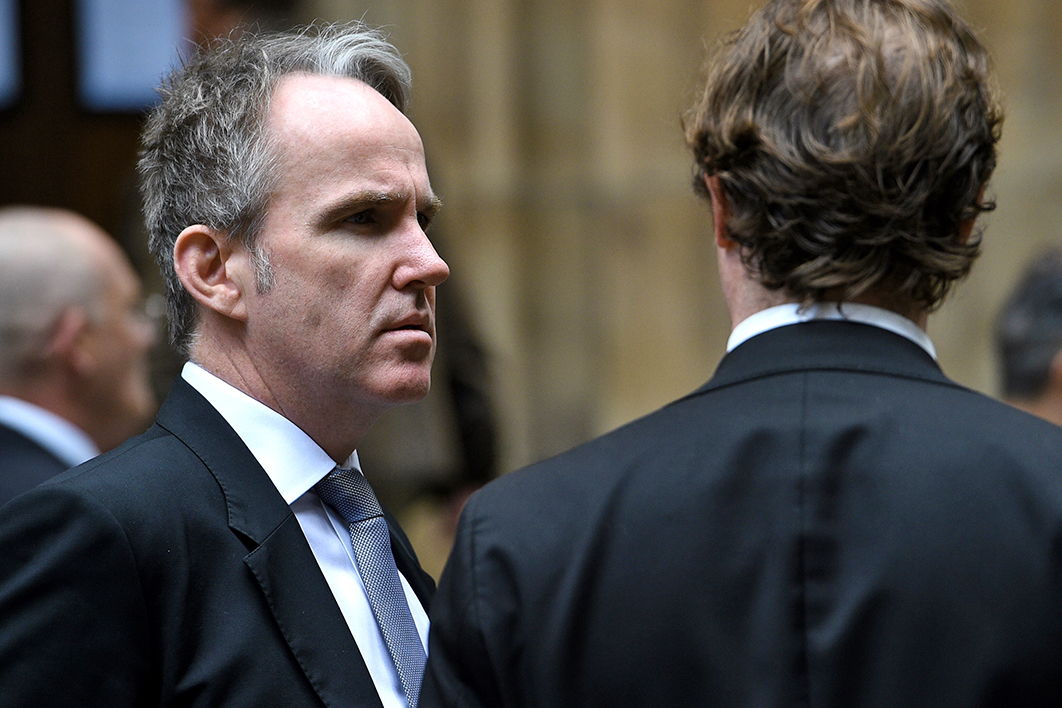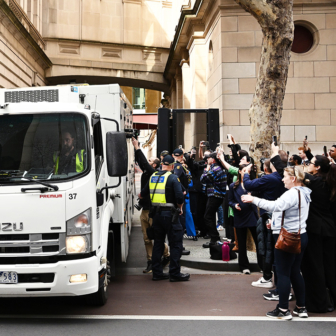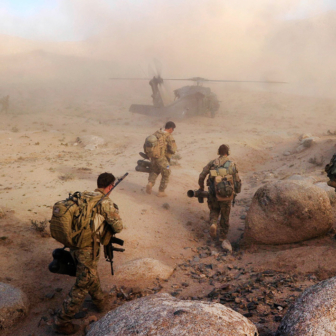A melodrama is playing out at the Australian Press Council. Like most things happening at the troubled organisation, it’s unfolding in slow motion. This storm has been gathering for the best part of four years.
In fact, the time it has been allowed to brew is perhaps the most worrying thing about it. It suggests, if any more evidence were needed, that our system of media self-regulation is far from fit for purpose.
The matter has been brought to a head by an article published by Matthew Ricketson in the latest issue of Australian Journalism Review, in which he alleges that the Australian has exercised an effective veto over his serving on adjudication panels concerning its journalism. Ricketson sits on the Press Council as a representative of the journalists’ union, the Media, Entertainment and Arts Alliance, or MEAA, a position that has been controversial.
Interviewed for this article, Ricketson makes his criticism in an even more pointed fashion. “I think it is outrageous that any publisher should be trying to dictate to the Press Council who should and who shouldn’t sit on an adjudication panel hearing a complaint about their journalism… It flies in the face of what genuine self-regulation of the news media is about.”
When I put a series of questions to the Australian, it responded with a short burst from editor-in-chief Christopher Dore. “Professor Ricketson’s new article only confirms our belief he has a genuine conflict of interest. It is an excellently articulated piece explaining why our concerns about his personal conflicts were thoroughly justified and remain so.”
In other words, there is no easy way out of this conflict.
The Press Council confirms that the matter will be discussed at its next meeting, on 19 November. Whichever way it goes, we can expect outrage, perhaps walkouts, and further doubts about the council’s ability to do its job.
The story begins ten years ago when Ricketson was appointed as a member of the Independent Inquiry into the Media and Media Regulation, created by the Labor government in the wake of Britain’s telephone hacking scandal and headed by Ray Finkelstein QC. The inquiry’s central recommendation was that there should be government-funded regulation of the news media because the Press Council and other existing mechanisms were not up to the job. The industry united in opposition to his report.
From this distance, it’s hard to recall the vehemence of the attacks on Finkelstein, his colleagues and Stephen Conroy, the minister who commissioned the report. Conroy was depicted as Stalin on the front page of the Daily Telegraph. As Ricketson recalls, “The next day, the newspaper apologised — to Stalin.”
In defending themselves from the threat of external regulation, the media organisations talked up how well the Press Council worked — even though all but one of its former and current chairs had told Finkelstein that the lack of independence from its major funders, the big media groups, was hobbling its ability to do its job. (For more on this history, see my piece from earlier this year.)
Finkelstein’s recommendations came to nothing, but Ricketson’s card was clearly marked.
Fast-forward to 2015, when the MEAA asked Ricketson to be its representative on the Press Council. This was odd, because the MEAA, like most of the industry, had opposed the Finkelstein recommendations, in which Ricketson had clearly had a role. Nevertheless, he accepted the post on the understanding, according to an MEAA statement, that he would represent the union’s policy positions.
“I was keen to see how I could contribute to effective self-regulation,” Ricketson writes in the Australian Journalism Review, “especially as the Press Council was now better resourced and the industry affirmed its commitment.”
Predictably, the usual Murdoch mascots fired up about his appointment and he became the latest in a long line of public figures to be subjected to one of the Australian’s campaigns of sustained vituperation. The tone of the five articles, two comment pieces, an editorial, a diary item and a cartoon can be judged from a piece by the paper’s excitable legal affairs correspondent, Chris Merritt, who wrote that “Matthew Ricketson deserves no blame for his appointment to the Press Council. To criticise him would be as senseless as blaming a rabid dog for having rabies. The blame rests with those who have overlooked his innate nature [sic].”
Eventually the campaign subsided, as these things do. But then, in 2017, Ricketson contributed to a series in Crikey about how the Australian targets its critics — referencing campaigns against Yassmin Abdel-Magied, Tim Flannery, Gillian Triggs and (I must declare) me.*
It was the Crikey series that spurred the Australian’s managing editor, Helen Trinca, to write to the Press Council arguing that Ricketson had an “inherent bias” against the publication and demanding he be excluded from any adjudication panels concerning it. The paper declared it would not take part in or accept any adjudication in which Ricketson was involved.
Trinca’s demand fell between two chairs, literally. Council chair David Weisbrot had left over a controversy about the appointment of Carla McGrath, deputy chair of GetUp!, as a public member. Many people — including me — considered that appointment inappropriate, but what horrified Weisbrot was how decisions of the council as a whole were being attributed to him by News Corp. The current chair, Neville Stevens, had not yet been appointed.
In other words, just in case the irony is not clear, a complaint about Ricketson pinging the Australian for vituperative personal attacks failed to be dealt with partly because the Press Council’s chair had resigned because of vituperative personal attacks by the Australian.
The council considered the Ricketson matter, but it was not resolved. Since then, says Ricketson, he has made himself available to sit on complaint adjudication panels but has been appointed to just four, none of them concerning the Australian.
He has raised the issue on several occasions, he says, “with increasing urgency. The council’s chair, Neville Stevens, told me at the council’s most recent meeting, on 13 May, that he would look into the issue of me sitting on panels. Perhaps he will, but I have heard nothing.”
In the intervening period, the MEAA has announced that it intends to leave the Press Council and is now serving out a notice period.
The council confirmed to me that the November meeting will “consider” the matter. It also said it had “comprehensive policies in place to deal with actual, perceived or potential conflicts of interest.” Comprehensive, perhaps. But clearly not speedy.
Reassuringly, in this context, the council recently issued a robust adjudication declaring that the Australian had breached fairness and accuracy guidelines in its coverage of gender-affirming healthcare. Ricketson obviously had nothing to do with that one, but the Australian nevertheless refused to accept it, using a combative editorial to argue that the decision was “wrongheaded” and “swayed unduly by a concerted campaign by activists.”
In further evidence that the newspaper has had an “irony-ectomy,” as Ricketson puts it, the Australian claimed to be a victim of “cancel culture.”
So what are we to make of the Ricketson matter? I was among those who thought it odd that he accepted the MEAA appointment in the first place, given the Finkelstein history. But ultimately that was a matter between him and those he was representing.
The Australian suggests in some of its communications that Ricketson has a conflict of interest. There is nothing in his conduct to suggest that’s the case.
Rather, the issue is perceived bias. But is he considered biased because he has criticised the Australian or because it has criticised him? And if critique does equal bias, a very long list of media academics and journalists would be disqualified from adjudicating complaints against various outlets. It is also, of course, part of a journalism academic’s job to critique. And Ricketson has repeatedly acknowledged that the Australian also does excellent journalism.
In other contexts, the Australian would surely assert that it is possible to critique public figures and institutions without being biased against them.
But the real shame is that this matter has been allowed to remain unresolved for so long. After nearly four years of inaction since the Australian’s complaint against Ricketson was first received, the matter can no longer be dodged. Could the council be about to lose another member — News Corp, its largest funder? Or will Ricketson walk — a largely symbolic move, given the MEAA is already going?
The Press Council’s travails don’t end there. The public hearings of the current Senate inquiry into media diversity — the inquiry spurred by Kevin Rudd’s petition to parliament calling for a royal commission into the Murdoch press — have revived memories of the Finkelstein finding that the council “suffers from serious structural constraints” and lacks “the necessary powers or the required funds to carry out its designated functions.”
On the other hand, the council recently welcomed a new chief executive, appointed after an extensive search. The woman in the hot seat is Yvette Lamont, previously group general counsel and company secretary of APN News and Media, now HT&E Limited.
I wonder if she realises what she is letting herself in for. •
* Further declarations could go on for a while, but those who are interested in my own history with the Australian will find an account in the Monthly back in 2012. Should I be tempted to seek appointment to the Australian Press Council, I suspect I too would be unacceptable to the Australian because of this history and other critiques. I disagreed with the central recommendation of the Finkelstein inquiry, but also thought aspects of the report were accurate and worthwhile. While we disagree on some of these matters, Ricketson and I have been friends and colleagues since starting together as cadets at the Age in 1982.
The publication of this article was supported by a grant from the Judith Neilson Institute for Journalism and Ideas.





